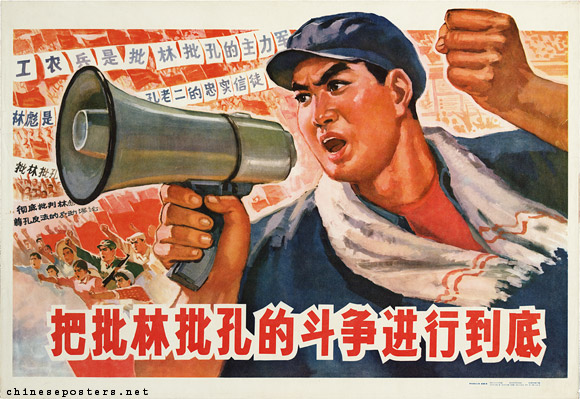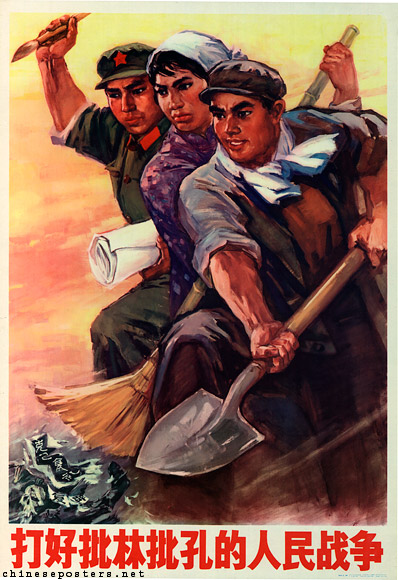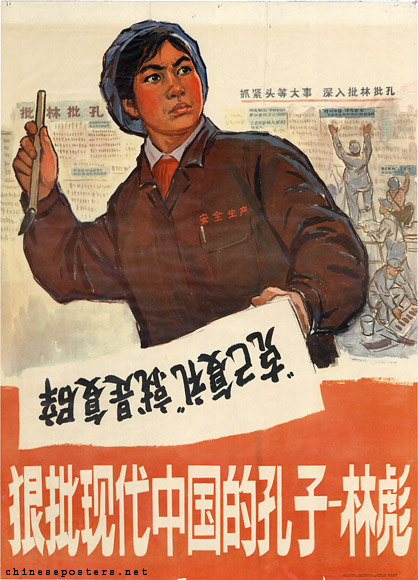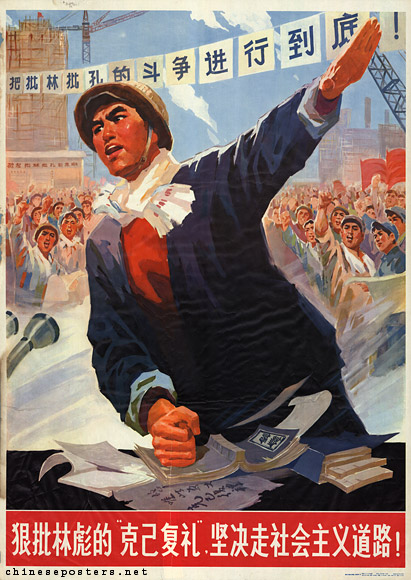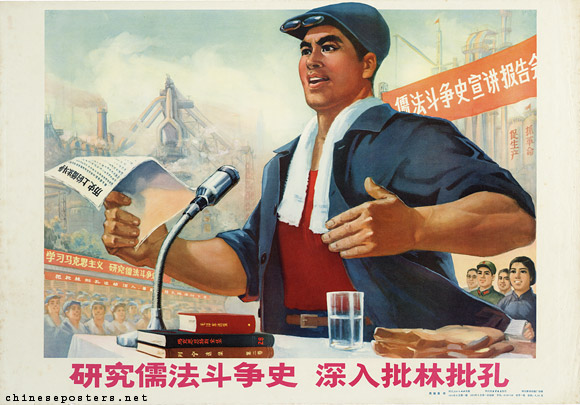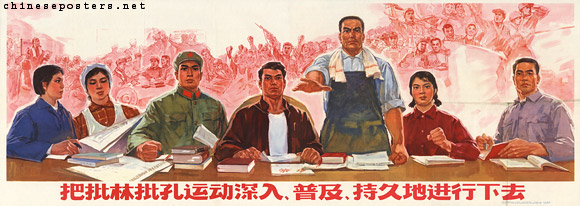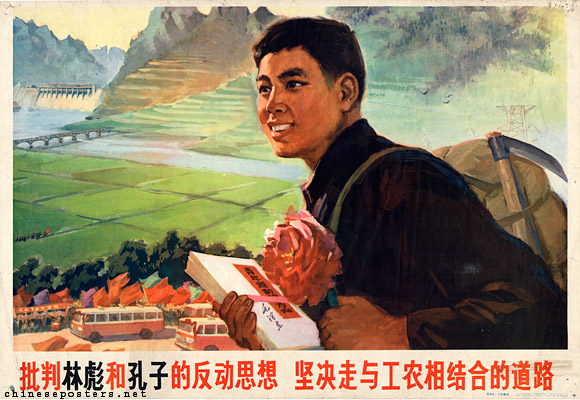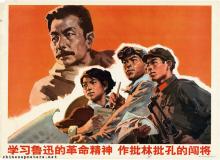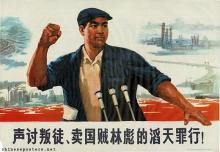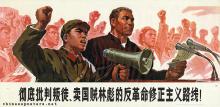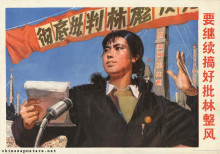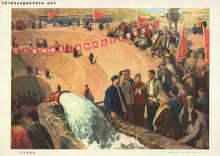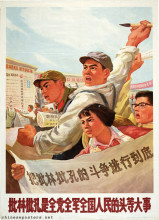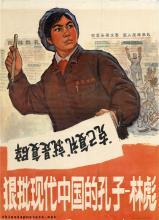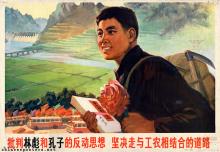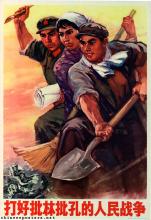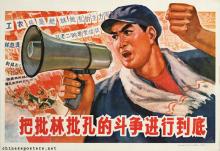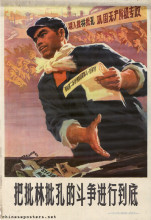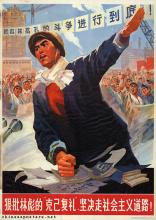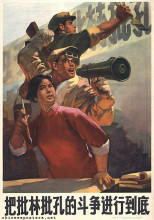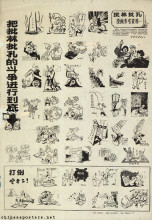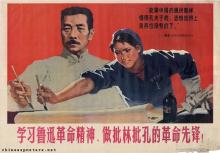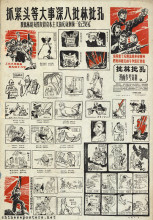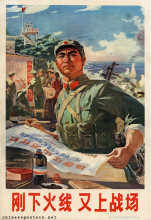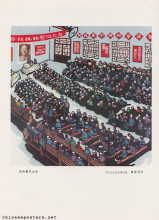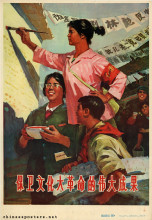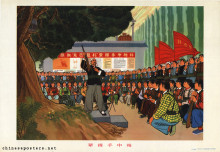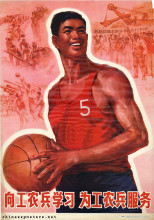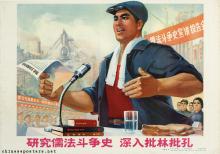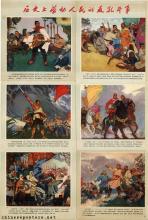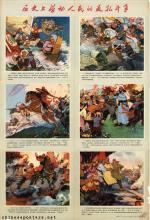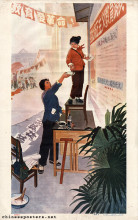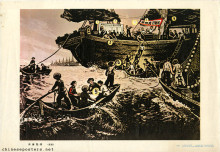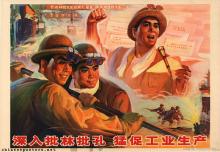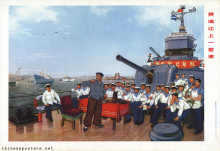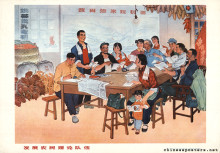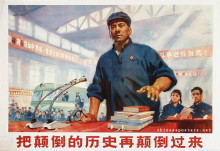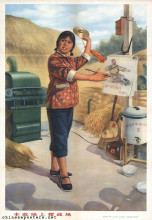Wage the struggle of criticizing Lin and Confucius to the end, 1974
Already in 1973, Mao Zedong indicated that the criticism of Lin Biao and his followers should be combined with a thorough criticism of Confucius. In the following months, Mao's remarks gave rise to a spate of articles in the Chinese media praising the Legalists and Qin Shihuangdi, the first emperor of China. Obscure historical allegories, discussing events from the Warring States Period (475-221 BCE) and the subsequent founding of the (first Chinese) Qin dynasty (221-207 BCE), were used to support the Gang of Four (which sympathized with the Legalist philosophers).
Fight the people's battle of criticizing Lin Biao and Confucius well, 1974
Relentlessly criticize China's Confucius of today and Lin Biao, 1974
In the highly abstract and complicated debate that took place at the highest levels, Mao saw himself as a latter-day Qin Shihuangdi, who, as his example from antiquity did, opposed the modern-day Confucius: Zhou Enlai. To simplify the issues at stake: the Legalists, and Qin Shihuangdi, were seen as the progressive forces, opposing the Confucians who were considered reactionaries.
In January 1974, the struggle was made into a large-scale, national movement. The media continued to publish articles that ostensibly were critiques of Lin Biao and Confucius. In fact, they were innuendo attacks on Zhou Enlai and other rehabilitated veteran cadres, including Deng Xiaoping. Although the movement had been reviewed by Mao himself, the Central Committee regularly had to send out circulars to clarify matters. In the eyes of the Gang, the movement was not as far-reaching as intended; Jiang Qing in particular continued to rally for the "seizure of the modern-day Confucian".
In December 1974-January 1975, Mao discussed the movement together with Gang-members and Zhou Enlai. Realizing that he had failed to oust Zhou, he turned his criticism on the Gang instead. Soon after Deng took over Zhou's responsibilities in 1975, the 'Criticize Lin, criticize Confucius campaign' (Pi Lin pi Kong yundong, 批林批孔运动) was brought to a halt.
Guo Jian, Yongyi Song & Yuan Zhou, Historical Dictionary of the Chinese Cultural Revolution (Lanham, etc.: The Scarecrow Press, Inc., 2006)
Kwok-sing Li (editor) & Mary Lok (translator), A Glossary of Political Terms of the People’s Republic of China (Hong Kong: The Chinese University Press 1995)
Zhonggong yanjiu zazhishe (ed.), Zhonggong "pi Kong" ziliao xuanji [A selection of materials of the Chinese Communist "Criticize Confucius" campaign] (Taipei: Zhonggong yanjiu zazhi, 1974) [in Chinese]
